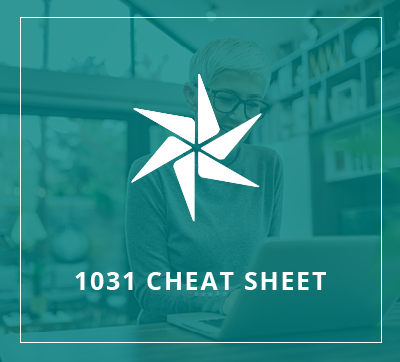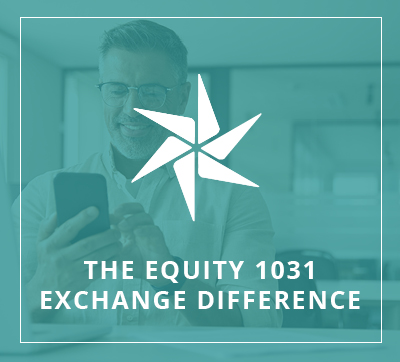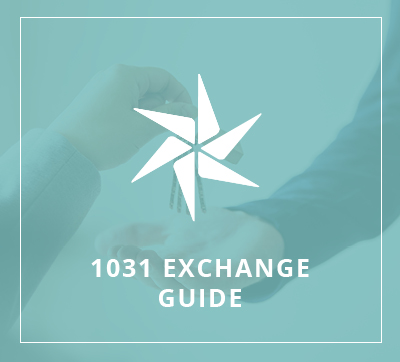-
1031 Exchange Resources for Realtors and Brokers
What Every Real Estate Professional Should Know About 1031 Exchanges
Three Most Important Things To Know About 1031 Exchanges As a Realtor:
1. Set up a 1031 Exchange before closing
A 1031 exchange can typically be accomplished right up until closing on the property. Once the property has been closed on, a 1031 Exchange is no longer possible.
2. Contact QI before closing
The IRS rules specify that an exchange must be handled by a Qualified Intermediary (QI). Equity 1031 Exchange fulfills this role and has 2 Certified Exchange Specialists (CES) on staff.
3. Enhance Your Client Relationships
Being knowledgeable about 1031 exchanges not only enhances your reputation with clients but can also lead to increased referrals from satisfied clients. Proactively identifying opportunities for clients to benefit from 1031 exchanges demonstrates your expertise and commitment to their financial success.
LEARN MORE
Download our 1031 Exchange Guide For Real Estate Professionals today.
In this guide, you'll gain an understanding of why 1031 exchanges are important, your role, and how to identify an exchange opportunity.
What is a Qualified Intermediary (QI)?
A Qualified Intermediary is an independent third party required by the IRS that acts as the middleman in both the sale and purchase of the properties in the exchange. The Qualified Intermediary, or QI, is required for the exchange and cannot be any agent or fiduciary of the investor. The QI prepares the exchange agreement, escrows the proceeds, and coordinates the exchange with closing agents.
Is a QI necessary for a 1031 exchange?
Yes, according to section 1031 of the Internal Revenue Code, a QI is necessary for the exchange to be valid. Not using a QI or using one who does not comply with key requirements can invalidate the transaction, negate tax benefits, and result in unnecessary penalties. The QI must be contacted to initiate the exchange before closing
1031 Exchange Tips For Success for Realtors/Brokers
WATCH THE TIMELINE
Adhering to IRS timelines is critical. Identify replacement properties within 45 days and complete the purchase within 180 days to avoid disqualification and immediate tax liabilities. These deadlines run concurrently with each other, and both begin on the day of closing.
ENSURE PROPERTY QUALIFIES
Make sure it’s an investment property. Only properties held for investment or business use qualify. Personal residences and properties held for resale do not qualify. Ensure the property meets IRS criteria to maintain tax-deferred status.
NET SELLING PRICE
NSP must be equal to or greater than the purchase price. To defer capital gains taxes fully, the net selling price of the relinquished property must be equal to or greater than the purchase price of the replacement property. Reinvest all sale proceeds to avoid taxable gains.
INCLUDE CORRECT CONTRACT LANGUAGE
Include intent language in purchase and sale agreements. Include language in purchase and sale agreements that reflects the intent to perform a 1031 exchange. Insert a cooperation clause to ensure all parties agree to the exchange process. Incorrect or missing language can jeopardize the exchange.
Working with Equity 1031 Exchange
When you entrust your client’s business to Equity 1031 Exchange, you know you’re in the right hands:
KNOWLEDGE AND EXPERIENCE
Equity 1031 Exchange is a qualified intermediary (QI) with over 50 years of combined experience in facilitating 1031 exchanges. Our team includes a Certified Exchange Specialist® (CES®). This underscores our commitment to providing clients with the highest level of expertise and guidance throughout their exchange transactions.
REFERRAL-BASED SUCCESS
Since 1997, our business has thrived on the strength of referrals from real estate professionals like yourself. Our proven track record of success is built on aligning our services to best serve the needs of our clients. We recognize the importance of collaboration and are committed to maintaining and fostering these relationships.
PERSONALIZED SERVICE AND SUPPORT
We take pride in offering comprehensive, end-to-end support for our clients. Each client benefits from the dedicated attention of a team member who guides them through the entire exchange process, addressing any concerns and ensuring a seamless experience. We understand that personalized attention is crucial for facilitating successful exchanges.
SECURITY AND TRUST
Client protection is paramount at Equity 1031 Exchange. We maintain a fidelity bond and a professional insurance policy from a leading, independent insurance underwriter to safeguard our clients and the funds they entrust to us.
Earn $225 for Every Client You Refer!
Refer your contacts to Equity 1031 Exchange and get rewarded for your great service and advice. No need to be the expert— sign up for our referral program, Referral Rock, and we’ll handle the rest. Receive $225 upon the first property closing in the exchange.
Share These Helpful Resources With Your Clients
Frequently Asked Questions
What language needs to be included in the contract?
LANGUAGE FOR SALE OF RELINQUISHED PROPERTY:
“Buyer is aware that Seller has the option to qualify this transaction as an Internal Revenue Code Section 1031 tax-deferred exchange. Seller requests Buyer’s cooperation in the event of an exchange and agrees to the assignment of this contract to Midland 1031, LLC by the Seller. Seller agrees to hold the Buyer harmless from any and all claims, liabilities, and costs of such an exchange.”
LANGUAGE FOR PURCHASE OF REPLACEMENT PROPERTY:
“Seller acknowledges and agrees that the Buyer may engage in a deferred or reverse exchange of like-kind property utilizing a qualified intermediary (QI) or an exchange accommodator titleholder (EAT) pursuant to Section 1031 of the Internal Revenue Code of 1986, as amended, and the Treasury Regulations, revenue procedures and other guidance promulgated thereunder. Notwithstanding any provision herein to the contrary, in the event the Buyer elects to engage in a deferred or reverse like-kind exchange, the Seller agrees to consent to the assignment of Buyer’s rights under this Agreement to a QI or EAT to facilitate such deferred or reverse like-kind exchange.
Seller further agrees to execute any and all documents reasonably necessary to consummate the purposes of this section. In the event Buyer engages an EAT for its exchange, Seller agrees to transfer legal title to the property to such EAT pursuant to instruments of transfer otherwise complying with the terms of this agreement. Any assignment by the Buyer in conformance with this section shall be at the cost of the Buyer. Such assignment shall not relieve Buyer of any of its obligations (including any post-closing obligations) or liabilities under this Agreement or delay the closing hereunder."
If I think my client may benefit from a 1031 exchange, what's the best course of action?
We can understand why you would be hesitant to bring it up. Your clients will inevitably have questions! We suggest giving us a call to discuss the preliminary details before you bring it up to your client. That way, we can assess the situation and see if your client meets the exchange's initial criteria. Other real estate agents tell their clients the importance of reaching out to a QI individually. Clients can directly discuss their scenario with the QI to see if they meet the requirements and have their questions addressed. You may call with the client on the line if you or your client want you to be a part of the discussion. Better yet, click here to set up a video conference with us.
My client is selling a duplex and wants to acquire a single-family residence as their replacement property. Are they allowed to do that?
Absolutely. All real estate qualifies as long as it is held for investment or business use. As long as your client is selling investment property to purchasing investment property, there is no issue.
How long does it take to get the exchange set up?
Sometimes we don’t even know that the client wants to do an exchange until they are near or at closing.
For standard exchanges, exchange documentation and closing instructions are typically sent out within 24 hours after receiving all necessary information and contracts. If your client is at closing and realizes that they need to set up an exchange, contact Equity 1031 Exchange immediately. Once your client leaves the closing, the opportunity to set up the exchange is lost. For Reverse and Improvement Exchanges, we request at least two to three weeks advance due to the complexity of these types of exchanges.
I don’t want to risk having this deal fall-through. How complicated is the exchange?
Most exchanges can be seamless. A 1031 exchange is especially smooth if it is set up in advance of closing on the sale. As the Realtor®, you have no additional obligation other than cooperating with the exchange. Even with more complex transactions, the exchange component can still be seamless, especially with advanced planning.


